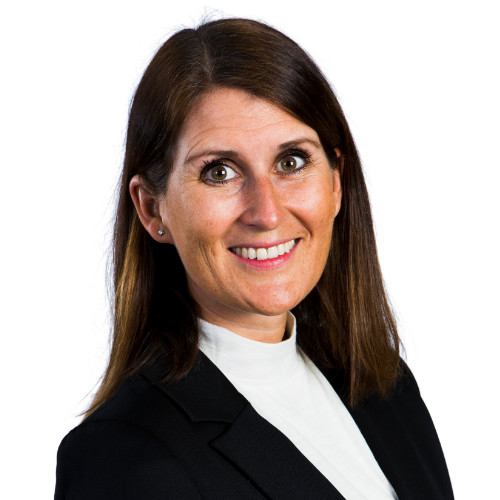Grant Thornton Malta’s 2021 conference, titled ‘Shaping Malta’s Future: Governance and Sustainability Conference 2021,’ kicked off on Wednesday with a broad discussion on the impact of COVID on working styles.

Victoria Darmanin/ LinkedIn
The panel, named: ‘The hybrid office: productivity, social dynamics and way forward,’ brought together four experts under the chairpersonship of Victoria Darmanin, Senior Manager of People and Culture, Learning and Development at Grant Thornton Malta.
Among key areas discussed was how exactly companies switched to remote work at the start of the pandemic, and what challenges they faced when doing so.
“We all have to admit the pandemic has changed how we work in one way or another,” said Ms Darmanin, inviting the panellists to reflect on their experience in the early days of the pandemic.
Gerd Bergh, Head of Employee Experience at leading Malta-based iGaming company Betsson, explained that when the pandemic hit, the company switched “very quickly” to remote working, committing to its priority of keeping staff members safe.
It was forced to learn and embrace challenges as it did so, including around onboarding and training new employees without meeting them face to face.
The company shifted its employee experiences – including quizzes, singing competitions, and talks about diversity and inclusion – to remote formats during this period.
Finian Massa, Strategic Marketing Manager of ICT Solutions concurred that it was a steep learning curve.
“It was a serious culture shock,” he explained, adding that at first among some staff, there was a betting pool for punters to guess the length of the lockdown. Most guessed one or two months,” he reminisced.
Like Ms Bergh, he reflected that while the companies processes and systems were ready, it did face several previously unexpected challenges, including those related to how to onboard new colleagues, which was “different from anything we’ve ever done before.”

Kjersti Arnsten/ LinkedIn
Kjersti Arnsten, Director of People and Culture at Grant Thornton International Ltd also provided interesting insights, from her vantage point overseeing a number of different jurisdictions.
As the pandemic spread across the world, she said, the group was able to take advantage of the fact that as the pandemic moved West from its origin in China, leaders that had already faced the pandemic were able to provide their insights as to some of the possible ways to deal with the challenges of switching remote working styles.
The respondents were also asked about some of the negatives of the switch in working styles, in light of a survey conducted by the Grant Thornton Malta which found that 34 per cent of those who worked from home during the pandemic reported they were either indifferent (12 per cent) to the format, of that it had a negative (22 per cent) effect on their wellbeing – compared to only 14 per cent who said it had a positive impact.
Ms Bergh added: “Of course there have been challenges. Some people have been isolated, and those with young children at home might have suffered.”
However, she expanded that according to the company’s internal surveys, the vast majority of Betsson’s employees were doing well while working from home, with 90 per cent indicating they still felt the Betsson spirit and culture while working remotely.
On the part of Joyce Cassar, Permanent Secretary for People and Standards at the Office of the Prime Minister, she explained that the body had to make sure that the public service’s rather expansive workforce had the support it needed, which was a challenge, considering that “five years ago no one could have remotely predicted this.”
This included giving support to people, engaging in outreach, and the training and support of those in positions where they are required to support staff themselves.
“It is easy to feel neglected if you are just working on your own,” said Mr Massa, adding that, “introducing office hours, and having the structures in place for one-to-ones to take place helped to foster cohesion and bonding.”
He also reflected that certain types of people, for example, those living with small children, people living on their own, and those without a proper home-working environment suffered especially.
Additionally, those from the typically more social teams, like sales, for example, suffered especially with less human interaction.
Looking to the future, asked for their outlook on the long term viability of remote working, the panellists were generally positive, acknowledging that while “nobody can predict the future… currently hybrid formats are probably the best system we have available.”
Betsson’s hybrid system will evolve, said Ms Bergh, especially because the situation is fluid, but for the moment its “model is working very well, and seems to be being welcomed by employees.”
“We just have to stay with our ear to the ground and evolve constantly,” she concluded.
Main Image:
